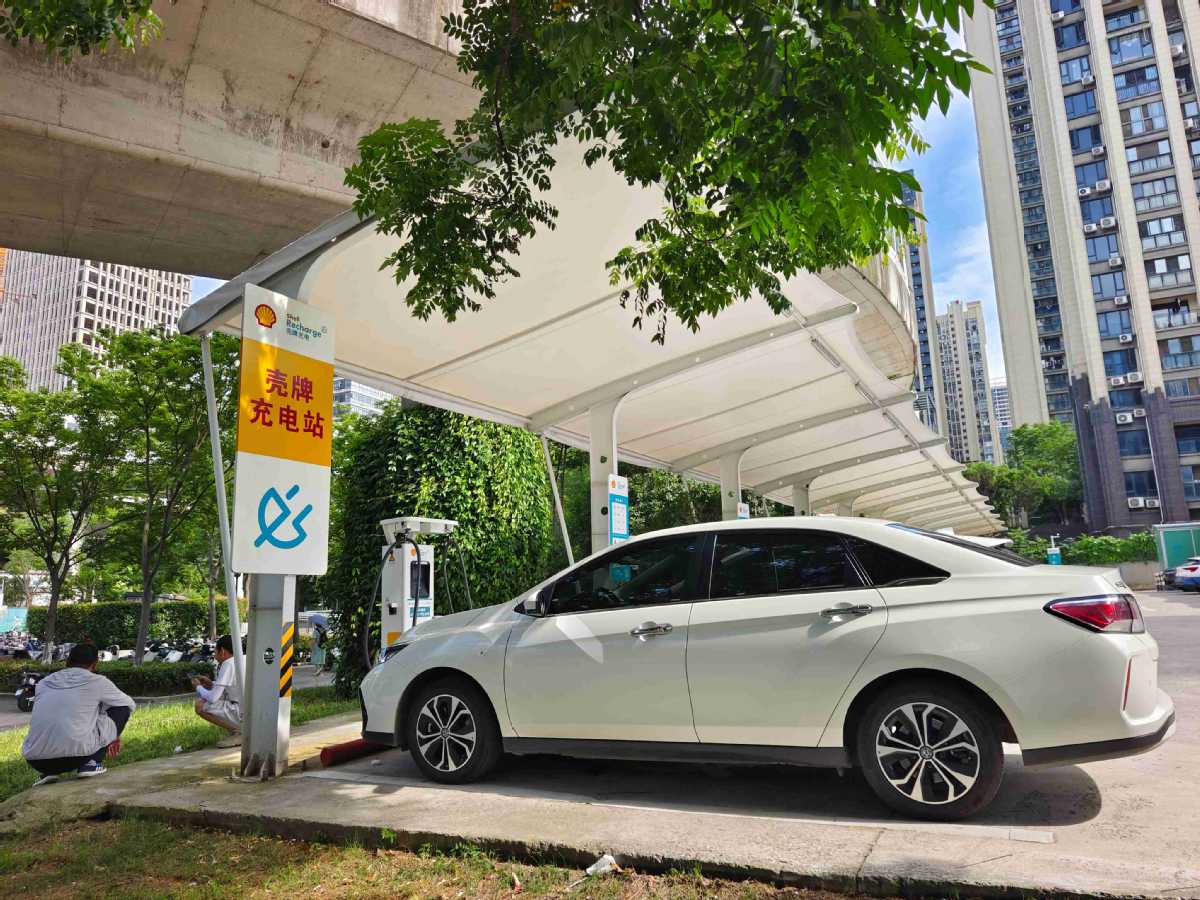Shell charging ahead with nation's booming EV sector


London-based Shell has identified China as one of its most crucial growth markets for electric vehicle charging, with over half of its global charging terminals now located in the country, underscoring its deep commitment to China's innovation and vast potential in the global green energy transition.
"China has been a leading market in the field of electric vehicle charging and Shell has made a lot of progress here," said Selda Gunsel, chief technology officer of Shell.
"We have 70,000 charging piles globally, and 40,000 of them are in China," Gunsel said during a recent industry summit in Beijing.
Shell's first charging station in China commenced operations in Tianjin in 2018, a time when new energy vehicle sales accounted for a mere 4.5 percent of total auto sales in the country.
Beyond its own network expansion, Shell has also forged interoperability partnerships with leading Chinese EV manufacturers, including BYD, Geely and Xiaomi, aiming to expand its reach to a broader base of private EV owners across China and strengthen its competitive market position.
Gunsel said Shell will continue leveraging its extensive global retail and mobility services network to support Chinese EV manufacturers in their international expansion efforts.
Industry experts said this is taking place amid China's accelerated transition to sustainable transportation and reinforces its leadership in global EV adoption.
As of late August, China boasted 17.3 million charging facilities, representing a 54 percent increase year-on-year. This total included 4.3 million public charging points, up 38 percent from the previous year, said the National Energy Administration.
China recently launched an ambitious action plan to significantly expand its EV charging infrastructure, aiming to double the country's charging service capacity by the end of 2027 by constructing 28 million new charging facilities nationwide.
The nationwide charging network is projected to deliver over 300 million kilowatts of capacity by 2027 to meet the charging needs of more than 80 million EVs, according to a document recently released by six government departments, including the National Development and Reform Commission.
To achieve its objectives, China plans to bolster urban fast-charging networks across various parking locations. By 2027, the plan calls for adding 1.6 million direct current charging stations in cities, with 100,000 of these being high-power units. Highway charging facilities will also see significant upgrades, with 40,000 new or renovated fast chargers of at least 60 kW to be installed in service areas.
Zhou Libo, deputy secretary-general of the China Electricity Council's electric transportation and energy storage branch, said the country has already built the world's largest charging network in terms of coverage after years of efforts.
During the 15th Five-Year Plan period (2026-30), the NEV and charging/battery swapping sectors are expected to maintain rapid growth, Zhou said.
The council suggested scientific planning and moderate construction charging facility growth ahead of demand to meet the upsurge.
Looking ahead, Shell affirmed its ongoing investment in power capabilities, integrating them with EV charging and broader power solutions, including battery technologies.
The company views China not only as a critical focus for its energy transition strategy, but also as a vital innovation hub, with its advancements in EV and decarbonization technologies poised to significantly influence the global energy landscape through Shell's worldwide network.
Andrew Mackenzie, chairman of Shell, highlighted China's high-quality development in energy, with a relentless determination to build an energy system that is more reliable, innovative, efficient, sustainable and safer.
"Energy has been the quiet force powering China's progress. We've worked in China for over 130 years, from the first kerosene lamps to today's EV charging hubs, and we want to remain a partner of choice through the energy transition as China strives to achieve its carbon peak and neutrality goals. I see many more opportunities to collaborate in the years ahead," Mackenzie said.
zhengxin@chinadaily.com.cn




































